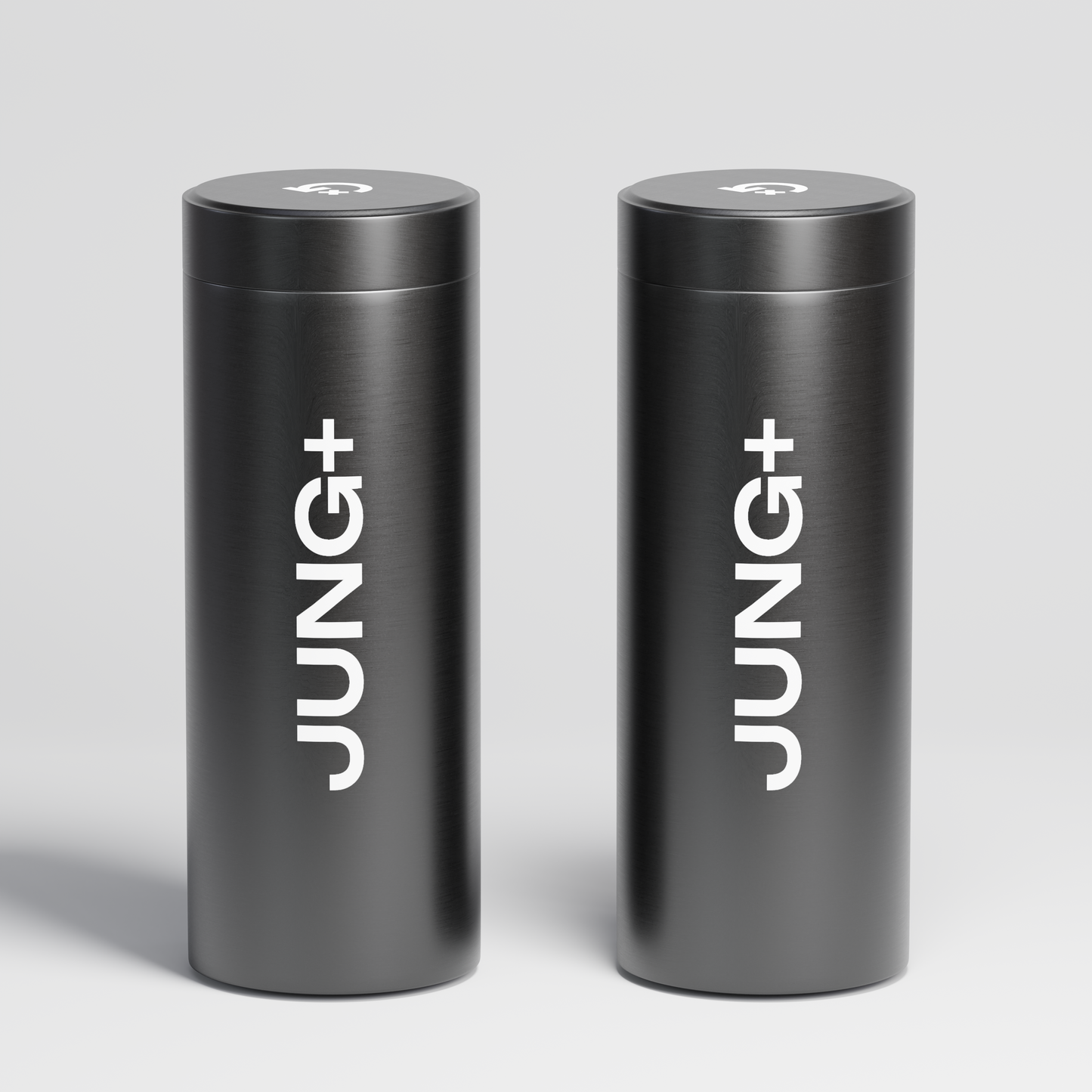"Mice exposed to fisetin lived 10% longer and experienced fewer age-related issues than the control group, even at an older age."
Dr. Paul D. Robbins, Professor at the University of Minnesota

FREE SHIPPING ON ALL SUBSCRIPTIONS!
FREE SHIPPING ON ALL SUBSCRIPTIONS!
FREE SHIPPING ON ALL SUBSCRIPTIONS!
FREE SHIPPING ON ALL SUBSCRIPTIONS!
FREE SHIPPING ON ALL SUBSCRIPTIONS!
FREE SHIPPING ON ALL SUBSCRIPTIONS!
FREE SHIPPING ON ALL SUBSCRIPTIONS!
FREE SHIPPING ON ALL SUBSCRIPTIONS!
FREE SHIPPING ON ALL SUBSCRIPTIONS!
FREE SHIPPING ON ALL SUBSCRIPTIONS!
FREE SHIPPING ON ALL SUBSCRIPTIONS!
FREE SHIPPING ON ALL SUBSCRIPTIONS!
FREE SHIPPING ON ALL SUBSCRIPTIONS!
FREE SHIPPING ON ALL SUBSCRIPTIONS!
FREE SHIPPING ON ALL SUBSCRIPTIONS!
FREE SHIPPING ON ALL SUBSCRIPTIONS!
FREE SHIPPING ON ALL SUBSCRIPTIONS!
FREE SHIPPING ON ALL SUBSCRIPTIONS!
FREE SHIPPING ON ALL SUBSCRIPTIONS!
FREE SHIPPING ON ALL SUBSCRIPTIONS!
FREE SHIPPING ON ALL SUBSCRIPTIONS!
FREE SHIPPING ON ALL SUBSCRIPTIONS!
FREE SHIPPING ON ALL SUBSCRIPTIONS!
FREE SHIPPING ON ALL SUBSCRIPTIONS!
FREE SHIPPING ON ALL SUBSCRIPTIONS!
FREE SHIPPING ON ALL SUBSCRIPTIONS!
FREE SHIPPING ON ALL SUBSCRIPTIONS!
FREE SHIPPING ON ALL SUBSCRIPTIONS!
FREE SHIPPING ON ALL SUBSCRIPTIONS!
FREE SHIPPING ON ALL SUBSCRIPTIONS!
"Mice exposed to fisetin lived 10% longer and experienced fewer age-related issues than the control group, even at an older age."
Dr. Paul D. Robbins, Professor at the University of Minnesota
Aging is a natural process, but modern science is uncovering ways to extend healthspan—the years of life spent in good health. One emerging compound that has captured the attention of longevity researchers is Fisetin. This plant-derived flavonoid found in strawberries, apples, and onions is proving to be a powerful ally in the fight against cellular aging.
What makes Fisetin stand out? It’s one of the most promising senolytic compounds—a type of molecule that targets and clears out aging cells that accumulate and drive age-related decline. In addition, Fisetin activates key longevity pathways, reduces inflammation, protects brain function, and supports metabolic health—all crucial factors in promoting a longer, healthier life.
Let’s explore the scientifically backed benefits of Fisetin, its mechanisms of action, and how it could be a game-changer in the quest for healthy aging and longevity.
One of Fisetin’s most exciting anti-aging properties is its ability to eliminate senescent cells—a major driver of aging and chronic disease.
As we age, some of our cells enter a state of senescence, where they stop dividing but refuse to die. These zombie-like cells secrete pro-inflammatory molecules that damage surrounding tissues, contributing to age-related diseases like cardiovascular disease, neurodegeneration, and metabolic dysfunction.
Studies have found that Fisetin is one of the most effective natural compounds for selectively clearing out these harmful senescent cells.
These findings suggest that Fisetin could help promote longevity by actively clearing out aged, dysfunctional cells—a process that has been linked to improved organ function, reduced inflammation, and enhanced overall vitality.
Aging is closely tied to oxidative damage and chronic inflammation, which fuel many degenerative conditions. Fisetin is a powerful antioxidant and anti-inflammatory agent, helping to protect cells from premature aging.
Chronic inflammation is a key driver of heart disease, neurodegeneration, and metabolic disorders. Fisetin has been shown to:
By lowering oxidative stress and inflammation, Fisetin helps protect tissues from long-term damage, potentially reducing the risk of age-related conditions.
Brain aging is one of the biggest concerns in longevity science. Cognitive decline, memory loss, and neurodegenerative diseases like Alzheimer’s and Parkinson’s are all associated with aging. Fisetin shows strong neuroprotective effects, making it a promising compound for maintaining brain function.
A study in senescence-accelerated mice found that Fisetin supplementation improved cognitive function and reduced markers of brain aging (Currais et al., 2018).
This makes Fisetin a promising natural compound for brain longevity, cognitive resilience, and mental clarity.
Aging is often accompanied by metabolic slowdowns and cardiovascular issues. Fisetin has been shown to enhance metabolic function and support heart health.
These effects position Fisetin as a potential longevity-supporting compound for maintaining heart health and metabolic balance over time.
One of the most well-studied ways to extend lifespan across multiple species is caloric restriction (CR)—the practice of reducing calorie intake without malnutrition. CR has been shown to activate cellular defense mechanisms, enhance energy metabolism, and delay age-related diseases. However, long-term caloric restriction is difficult to sustain.
A caloric restriction mimetic is a compound that mimics the benefits of caloric restriction without requiring a drastic reduction in food intake. CRMs work by activating the same longevity pathways as caloric restriction, including:
Research suggests that Fisetin behaves as a caloric restriction mimetic, activating similar longevity-enhancing pathways.
By mimicking caloric restriction’s effects at a cellular level, Fisetin may help support longevity, improve metabolic function, and enhance resilience against age-related decline—without requiring extreme dietary restrictions.
Fisetin is emerging as a powerful longevity-enhancing flavonoid with evidence-backed benefits for cellular aging, brain health, inflammation control, and metabolic function. By clearing senescent cells, activating longevity pathways, and protecting against oxidative stress, Fisetin has the potential to promote a longer, healthier life.
While human studies are still in their early stages, the current evidence suggests that Fisetin is a compelling addition to any longevity-focused lifestyle.
As research continues to uncover its full potential, Fisetin may very well become a cornerstone of future anti-aging strategies.

A study investigated Fisetin's effects on aging in mice, demonstrating that Fisetin administration reduced senescent cell markers, decreased age-related pathology, and extended both median and maximum lifespan. The findings suggest that Fisetin's senolytic properties—its ability to selectively eliminate senescent cells—contribute to improved healthspan and longevity. Reference: Yousefzadeh MJ, et al, Fisetin is a senotherapeutic that extends health and lifespan. EBioMedicine. 2018 Oct;36:18-28. doi: 10.1016/j.ebiom.2018.09.015. Epub 2018 Sep 29. PMID: 30279143; PMCID: PMC6197652.
This study explored Fisetin's neuroprotective properties in Alzheimer's disease models, finding that Fisetin administration reduced cognitive deficits and pathological markers associated with Alzheimer’s. The results indicate Fisetin may mitigate neuroinflammation and oxidative stress, offering potential therapeutic benefits for neurodegenerative conditions. Reference: Neuroprotective Effect of Fisetin Against Amyloid-Beta-Induced Cognitive/Synaptic Dysfunction, Neuroinflammation, and Neurodegeneration in Adult Mice, Molecular Neurobiology, 2016
Researchers examined Fisetin's role in protecting skin cells from UV-induced damage, finding that it reduced oxidative stress and inflammatory responses in skin cells. This suggests its potential in preventing photoaging and maintaining skin health. Reference: Fisetin Regulates Nrf2 Expression and the Inflammation-Related Signaling Pathway to Prevent UVB-Induced Skin Damage in Hairless Mice, Int J Mol Sci. 2017
50-500 mg
per day
~ 312
grams of Strawberries
A single dose of our product contains the equivalent of approximately 312 grams of strawberries for its Fisetin content.
Fisetin is primarily found in fruits and vegetables, with strawberries being the richest natural source. Other notable sources include apples, persimmons, onions, and cucumbers, though in much lower concentrations. Adding fisetin to your diet involves consuming these foods, but the amounts required for therapeutic effects are significantly higher than what can typically be obtained through diet alone.


Fisetin is a key component in our Longevity Foundation due to its senolytic properties and ability to promote cellular rejuvenation. Included at a clinically studied dose, Fisetin may help clear senescent cells and enhance mitochondrial health, supporting your overall longevity goals. Longevity Foundation is a complete foundational supplement protocol designed to target aging at its roots and extend healthspan.












Fisetin can be taken at any time of day, but for optimal absorption, it is often recommended to take it with a meal containing healthy fats to enhance bioavailability.
Fisetin is generally safe for daily use at lower doses (e.g., 50-250 mg), but higher doses used in senolytic protocols are typically taken intermittently, such as over 2-3 consecutive days once a month.
Fisetin is well-tolerated in most people, but high doses may cause mild gastrointestinal discomfort or headaches, making a lower daily dose more optimal. Consult a healthcare provider if you experience any adverse effects.
While both are flavonoids, Fisetin may be a more potent senolytic, specifically targeting and clearing senescent cells, whereas quercetin has broader antioxidant properties but less senolytic activity.
Yes, Fisetin can be safely combined with many other supplements. It is often paired with pterostilbene or quercetin for synergistic antioxidant and anti-inflammatory effects.
Fisetin supplements are typically plant-based and suitable for vegetarians and vegans. However, always check the label for additional ingredients that may not align with specific dietary needs.
Current studies suggest that Fisetin is safe for long-term use at lower doses. Intermittent high-dose protocols for senolytic effects should be monitored by a healthcare provider to ensure safety and efficacy.
Antika, L., & Dewi, R. (2021). Pharmacological aspects of fisetin. Asian Pacific Journal of Tropical Biomedicine, 11, 1-9.
Currais, A., Farrokhi, C., Dargusch, R., Armando, A. M., Quehenberger, O., Schubert, D., & Maher, P. (2018). Fisetin reduces the impact of aging on behavior and physiology in the rapidly aging SAMP8 mouse. The Journals of Gerontology: Series A, 73, 299–307.
Goujon, M., Liang, Z., Soriano-Castell, D., Currais, A., & Maher, P. (2024). The neuroprotective flavonoids sterubin and fisetin maintain mitochondrial health under oxytotic/ferroptotic stress and improve bioenergetic efficiency in HT22 neuronal cells. Antioxidants, 13.
Kim, S. C., Kim, Y. H., Son, S., Moon, E., Pyo, S., & Um, S. (2015). Fisetin induces Sirt1 expression while inhibiting early adipogenesis in 3T3-L1 cells. Biochemical and Biophysical Research Communications, 467(4), 638-644.
Lee, E., & Burns, M. (2024). The effects of fisetin on reducing biological aging: A pilot study. Alternative Therapies in Health and Medicine.
Maher, P. (2009). Modulation of multiple pathways involved in the maintenance of neuronal function during aging by fisetin. Genes & Nutrition, 4, 297-307
Maher, P. (2015). How fisetin reduces the impact of age and disease on CNS function. Frontiers in Bioscience, 7, 58-82.
Pu, J., Huang, Z.-T., Luo, Y., Mou, T., Li, T.-T., Li, Z., Wei, X., & Wu, Z. (2021). Fisetin mitigates hepatic ischemia-reperfusion injury by regulating GSK3β/AMPK/NLRP3 inflammasome pathway. Hepatobiliary & Pancreatic Diseases International: HBPD INT.
Singh, S., Garg, G., Singh, A., Bissoyi, A., & Rizvi, S. (2019). Fisetin, a potential caloric restriction mimetic, attenuates senescence biomarkers in rat erythrocytes. Biochemistry and Cell Biology = Biochimie et Biologie Cellulaire.
Telrandhe, U. B., Shete, V. S., & Vaidya, S. N. (2024). Exploring the pharmacological potential of fisetin: A comprehensive review. International Journal of Pharmaceutical Quality Assurance.
Yousefzadeh, M., Zhu, Y., McGowan, S., Angelini, L. A., Fuhrmann-Stroissnigg, H., Xu, M., & Niedernhofer, L. (2018). Fisetin is a senotherapeutic that extends health and lifespan. EBioMedicine, 36, 18-28.

Build your stack, today
Tell us about yourself and your goals. We'll use your answers to determine your baseline and build your recommendations.